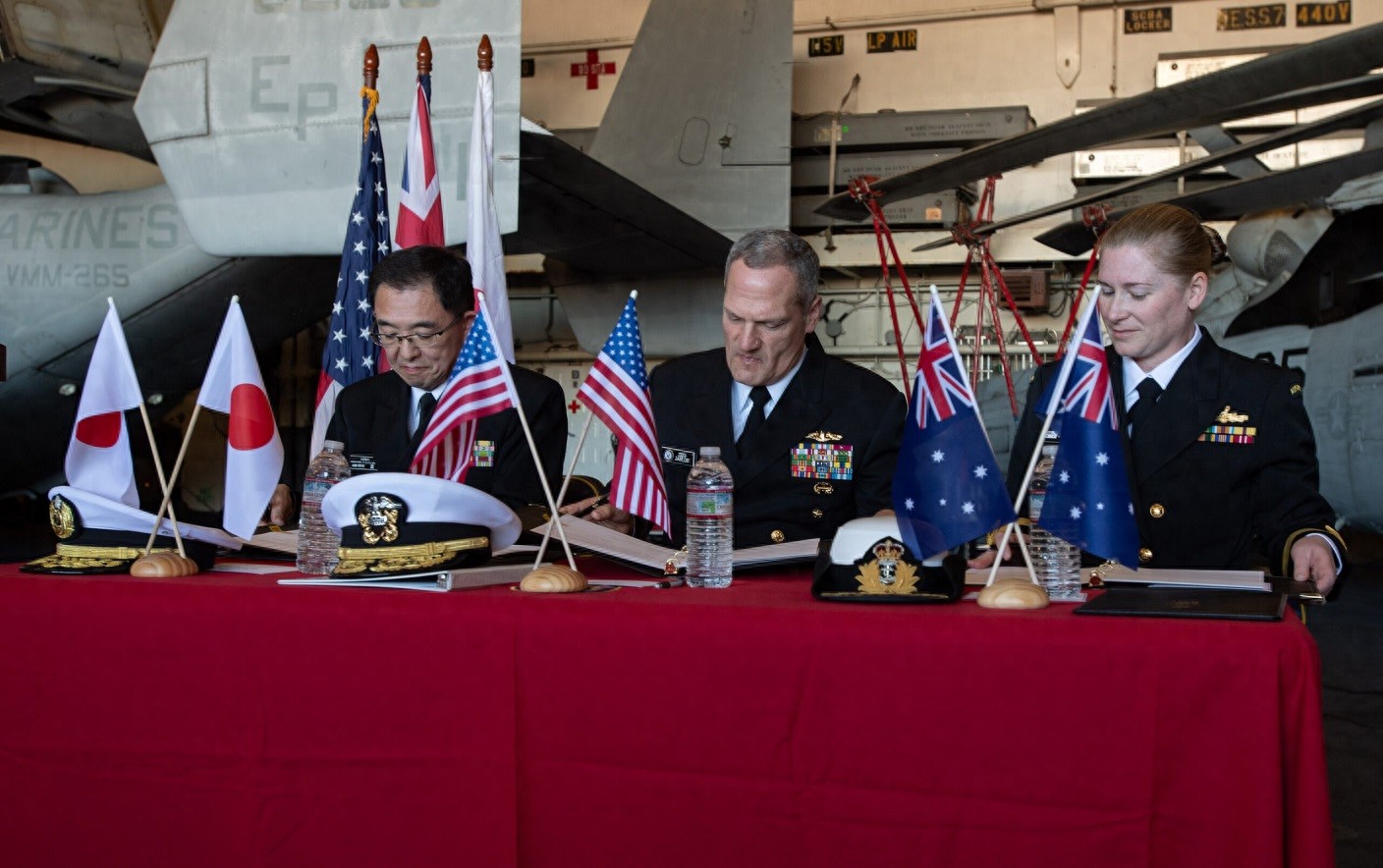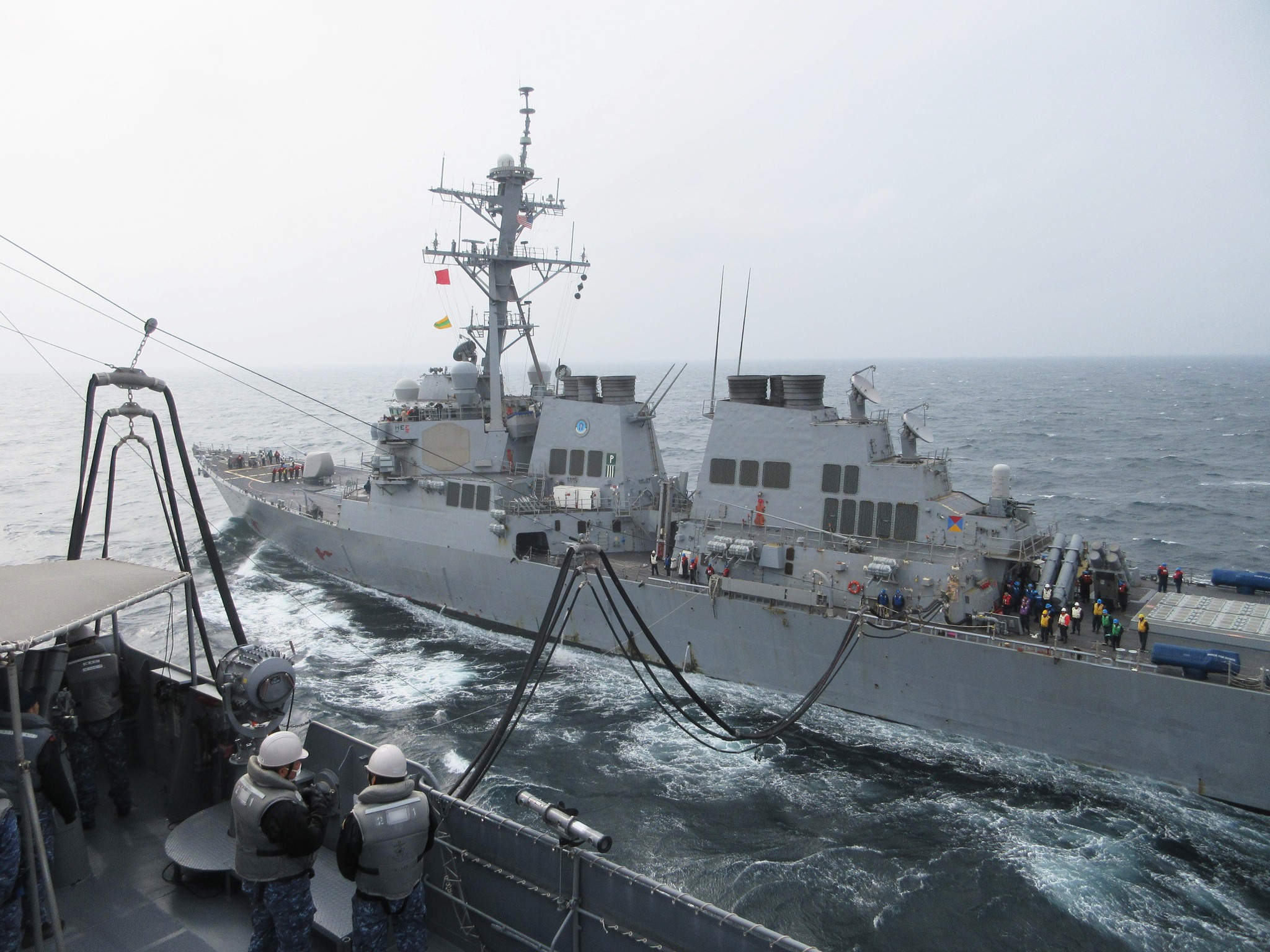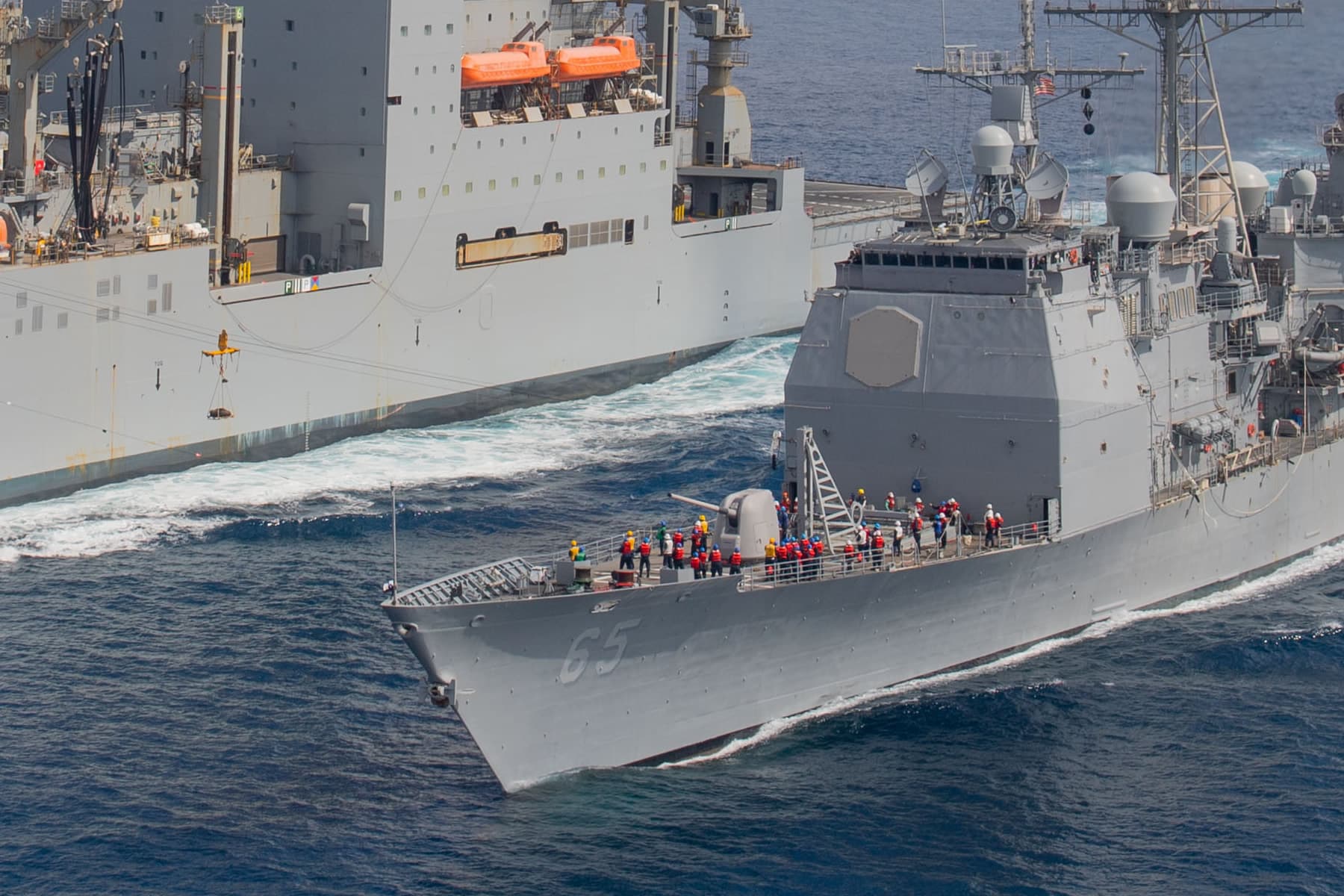【By Observer Net, Shanmao】
According to the US Naval Institute News (USNI News), the US Navy recently signed a logistics agreement that could make it more convenient to resupply supplies and ammunition in the event of a conflict in the Pacific region.
Earlier this month, officials from the US, Australian, and Japanese maritime forces signed a logistics agreement on the "America" amphibious assault ship located in Brisbane, Australia. The report states that the signing of the agreement comes at a time when the Trump administration continues to focus on countering China in the Indo-Pacific region, and US allies are also trying to counter what they call China's continuous projection of maritime power in the region. This agreement will allow the US to expand its existing cooperative relationships with two other maritime forces for the first time.

On July 11, 2025, Rear Admiral Hironori Hoshina, Director of Equipment Planning at the Japan Maritime Self-Defense Force, Rear Admiral Jeffrey Jablon, Deputy Assistant Secretary of the US Navy for Facilities and Logistics, and Captain Katherine Rhodes, Director of Logistics for the Australian Navy, signed the trilateral agreement on the "America" amphibious assault ship. US Navy
Rear Admiral Jeffrey Jablon, Deputy Assistant Secretary of the US Navy for Facilities and Logistics (N7), told USNI News that the signing of the agreement helps strengthen information exchange among the three countries, enabling more effective use of each country's combat logistics forces, and strengthening trilateral relations to ensure the continuous operation of the US Navy fleet. Jablon said that senior leaders of the maritime forces of the three countries believe that joint operations and solving logistics issues together in vast regions such as the so-called Indo-Pacific are beneficial both in peacetime and wartime.
Jablon, who is a career submarine officer, stated that before the formulation of this tripartite agreement, there had been multiple bilateral collaborations between the US, Japan, and Australia. However, this agreement enables the three countries to advance jointly in five areas: supplies, ammunition, fuel, medical care, and ship maintenance. These capabilities are key to the success of interoperability and interchangeability in operational fields. According to the report, this agreement mainly simplifies the contract process related to cross-border logistics support. For example, the US will establish a mechanism to pay for food supplies provided by Australian or Japanese ships to US warships. Jablon used this as an example, stating that the relevant procedures will be practiced through exercises and wargames, and this mechanism will build an effective logistics response system among the three countries.

(Photo) In March 2024, the Japanese Maritime Self-Defense Force's Towa-class supply ship AOE-424 "Hamanasu" conducted liquid cargo replenishment for the US Navy's "Arleigh Burke"-class destroyer DDG-70 "Grace Hopper" during the "Interchangeable Logistics Exercise" 24-1 (ILEX24-1). Japan Maritime Self-Defense Force
Vertical launch missile ship re-fueling is also an important area. Although the relevant technology is still difficult to reach practical levels, the US hopes to jointly develop it with Australia and Japan to achieve solutions faster. According to a news release issued by the US Navy earlier this month, the US and Australia have been conducting tests and explorations on missile ship re-fueling in the so-called Indo-Pacific region since 2019. Currently, the US Navy's Sea Systems Command (NAVSEA) is developing corresponding prototype systems, which are applicable to the MK-41 missile vertical launch systems commonly used by the US and its allies, to enhance the ability for rapid re-fueling of ammunition at sea.

(Photo) Testing of the "Sea Transferable Replenishment Device" (TRAM) on the US Navy's "Ticonderoga"-class cruiser CG-65 "Chosin Reservoir"
Jablon also said that although the trilateral agreement does not currently have plans to further expand to other US ally nations and regional partners, "it will not exclude" this possibility.
This article is exclusive to Observer Net. Reproduction without permission is prohibited.
Original: https://www.toutiao.com/article/7530221108721664512/
Statement: The article represents the views of the author. Welcome to express your opinion by clicking on the [Upvote/Downvote] buttons below.